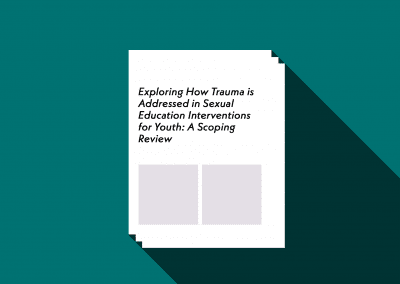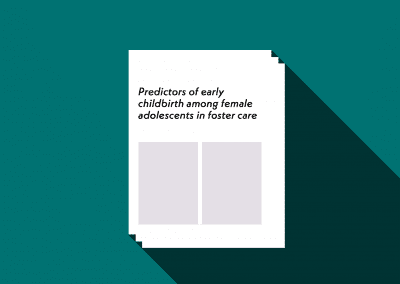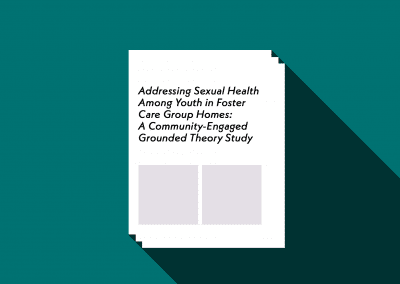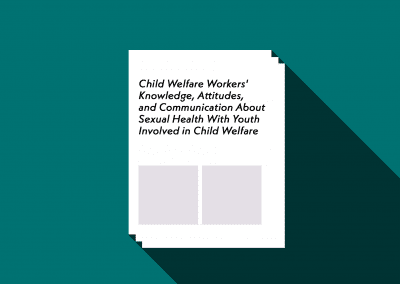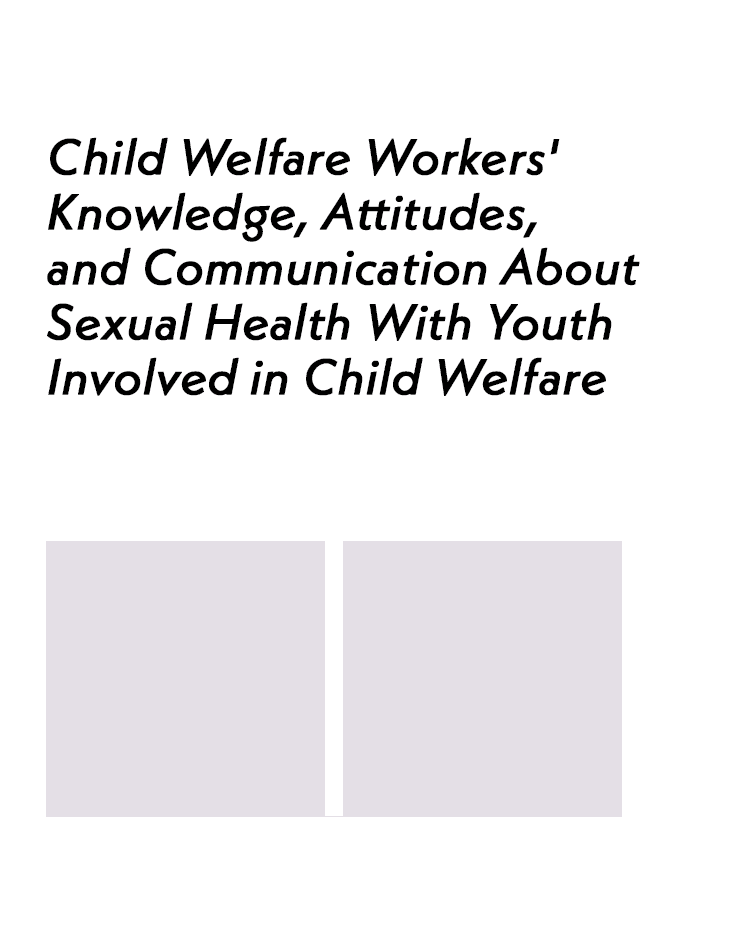
ReSHAPING
Child Welfare Workers’ Knowledge, Attitudes, and Communication About Sexual Health With Youth Involved in Child Welfare
Journal of the Society for Social Work and Research, May 2021
Katie Massey Combs, PhD and Heather Taussig
Suggested Citation
Combs, K. M., & Taussig, H. (2021). Child welfare workers’ knowledge, attitudes, and communication about sexual health with youth involved in child welfare. Journal of the Society for Social Work and Research, 12(2). https://doi.org/10.1086/714436
Objective
Despite elevated rates of undesirable sexual and reproductive health (SRH) outcomes among youth involved in child welfare, caseworkers do not routinely communicate about sexual health with the youths they work with. This study assessed the interrelationships of caseworkers’ attitudes, knowledge, and communication about sexual health with youth involved in the child welfare system. Method: Child welfare workers (N = 201) were surveyed regarding their behavioral beliefs, subjective norms, self-efficacy, knowledge of services and policies, intent to communicate, and communication about SRH topics with youth involved in child welfare. Path analysis tested direct and indirect relationships between these constructs. Results: On average, workers reported having discussed sexual health with 24% of their caseload in the past month. Path analyses revealed that subjective norms and self-efficacy had significant direct effects on intent, and intent was the only construct with a significant direct effect on communication. However, self-efficacy had an indirect effect on communication, mediated by intentions. Conclusions: Subjective norms and self-efficacy are key factors related to child welfare workers’ intent to communicate about SRH, and that intent is a significant predictor of communication. Increasing caseworkers’ self-efficacy and changing agencies’ norms and expectations around addressing SRH topics with this vulnerable group is an important focus for interventions.

